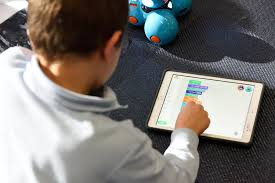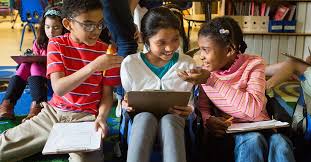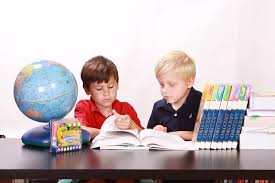What other games are suitable for students with special needs?
The 10 Best Toys and Games for Children with Special Needs
- Fidget Toys Sensory Bundle Set.
- Tumbling Monkeys.
- Bilibo Child Seat.
- Feelings in a Flash.
- Vtech Tote & Go Laptop.
- Teachable Touchable Texture Squares.
- Basic Skills Busy Board.
- Counting and Sorting Bears.
How do you entertain children with special needs?
Activities to Try With Special Needs Kids During the Coronavirus Pandemic
- Balloon Volleyball.
- Dig In.
- Find the Puzzle Piece.
- Fun in the Tub.
- Gelatin Fishbowl.
- Get Creative With Shaving Cream.
- Living Room Campout.
- Read Together.
How do you adapt a game for a disabled child?
Adapting common games so everyone can play
- Kids with disabilities want to play, just like any other kids. They want to interact, be active, socialize, make friends and join in the fun.
- Playing tag. Instead of trying to touch one another, use a safe and soft object like a foam pool noodle.
- Hide and seek.
What are the best toys for autistic child?
The 10 Best Sensory Toys for Autism
- Sensory Mats. A great sensory toy for children with autism is a series of sensory mats.
- Chew Toys.
- Sand, Slime, or Putty.
- Pin Art.
- Rainmaker Toys.
- Fidget Spinners.
- Electric Dog Pet.
- Senseez Vibrating Cushion.
What other games are suitable for students with special needs? – Additional Questions
What calms an autistic child?
A child with autism can learn to calm themselves by being taught what to do when anxiety strikes. Provide the child with tools to self-soothe, such as sensory toys, calming books or videos, weighted blankets, a swing set, or even a pet.
What is a sensory toy?
A sensory toy is one that is specially designed to stimulate one or more of the senses. Sensory toys may be more appealing to children on the spectrum because they can help the child remain calm and provide the sensory experience they want.
How do you keep an autistic child entertained?
Find all your board games and bring them out for turn-taking with your child! Pick a game to play each day or every other day to include the whole family! Play Charades with your child or children! Have them either help create different subjects or make it fun by teaming up and having them act out a card together!
What do you get a child with autism?
Top 10 gifts for kids with autism
- STRETCHY APPLE & WORMS. 10/10. A must have.
- My Communication Keyring. 8/10.
- Sensory LED Light up Drawing/writing Board. 9/10.
- Fidget Pencils. 9/10.
- 1000 Glow In The Dark Stars. 9/10.
- Large Puffer “Furb” Ball. 9/10.
- Worry Eater Flamm. 8/10.
- Glow Disco Duck. 8/10.
Are sensory toys good for autism?
Sensory toys are versatile and useful tools that can help children with autism in so many different ways. They’re great for children with other kinds of sensory processing disorders too.
How do you stimulate a child with autism?
7 Fun Sensory Activities for Kids With Autism
- Make a Sensory Bottle:
- Try Coin Rubbing:
- Thread Edible Jewelry:
- Create a Sensory Collage:
- Incredible Ice Painting:
- Boost Your Brain With a Smelling Game:
- Play the Magical Matching Game:
What games are good for autistic child?
Ten Toys and Games for Autistic Toddlers and Children
- Sign up for AmazonSmile and designate Autism Speaks as your charity of choice.
- Simple First Words: Let’s Talk.
- 2-in-1 Snug ‘n Secure Swing.
- Smart Tablet.
- Sound Puzzles.
- Jumpsmart Electronic Trampoline.
- Calico Critters Family Camper and Cherry Cruiser.
- Hungry Hungry Hippos.
What does autistic stimming look like?
About stimming and autism
Stimming might include: hand and finger mannerisms – for example, finger-flicking and hand-flapping. unusual body movements – for example, rocking back and forth while sitting or standing. posturing – for example, holding hands or fingers out at an angle or arching the back while sitting.
How does an autistic child learn best?
Both children on the autism spectrum and their neurotypical peers learn best when they are exposed to various learning styles and teaching methods. Studies have shown that uncovering and supporting children’s favored learning styles can improve performance in all areas.
What do students with autism struggle with?
School activities that may be particularly challenging for students with Autism Spectrum Disorder (ASD), previously referred to as Asperger’s Disorder, include social interactions, noisy or disordered environments, intense sensory stimulation, and changes in expected routines.
What is high functioning autism?
“High-functioning autism” isn’t an official medical term or diagnosis. It’s an informal one some people use when they talk about people with an autism spectrum disorder who can speak, read, write, and handle basic life skills like eating and getting dressed. They can live independently.
Can autism go away?
The short answer is no. Autism is a lifelong diagnosis, and there is no known cure. As a spectrum disorder, there are varying degrees of autism and levels of disability. Some children with milder symptoms can learn how to manage the disorder more effectively than others.
What are the 3 main symptoms of autism?
The symptoms to look out for in children for suspected autism are: Delayed milestones. A socially awkward child. The child who has trouble with verbal and nonverbal communication.
Does autism get worse after age 3?
Researchers say that about 30% of children with autism have less-severe symptoms at age 6 years than they did at age 3 years. No one is sure why some children seem to improve dramatically while others do not. But it is an encouraging sign that seems to indicate that autism doesn’t worsen with age.
At what age does autism peak?
A recent study by UC Davis MIND Institute researchers found that the severity of a child’s autism symptoms can change significantly between the ages of 3 and 11.
At what age should an autistic child be potty trained?
The average age in which a child is successfully toileting was 3.3 years of age for children with autism in comparison to 2.5 years of age for children with other developmental disabilities (Williams, Oliver, Allard, & Sears, 2003).
Can a child with autism go to normal school?
Autism Programs and IEP in Public Schools
Can children with autism attend regular school? Of course they can, but it is important to have accommodations in place that support the special learning needs of a child on the spectrum.




